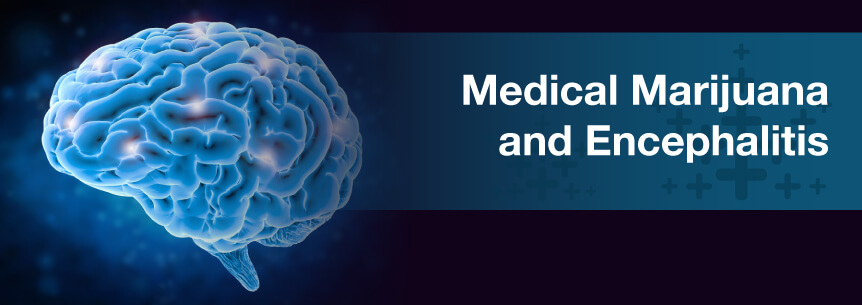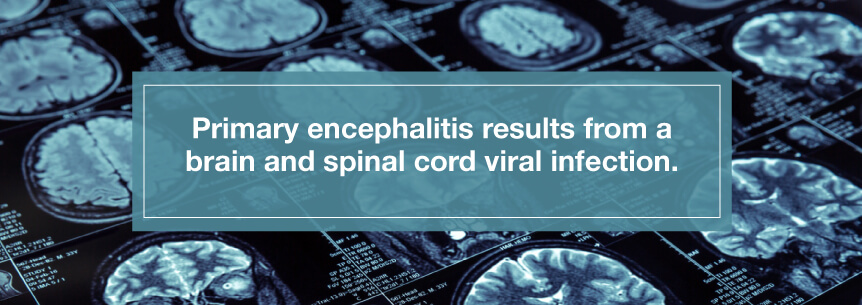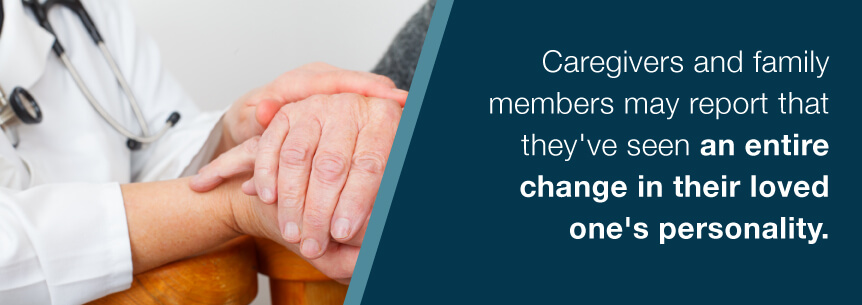
Scientists and researchers are finding out more and more how effective medical marijuana is in combating the unwanted symptoms of a whole range of medical conditions. Now, researchers are even studying medical cannabis for encephalitis.
Encephalitis is an inflammatory brain disease. Your brain swells due to this inflammation, leading to neurological function changes and resulting in seizures and mental confusion.
What causes encephalitis depends on the area of the country you’re in, the season and the type of exposure. The primary cause of encephalitis is viruses. While certain viruses can lead to encephalitis, many virus vaccines can help lower the rate of the condition, such as vaccines for:
Viruses, such as rabies and herpes simplex virus, may cause the condition.
You can also get encephalitis from infection through agents like those below that are carrying the disease:
A bacterial infection can also cause encephalitis.
Anybody can develop the condition, but certain factors increase your risk. Those factors include:
You’ll find a variety of different types of encephalitis, which include the following.
Primary encephalitis results from a brain and spinal cord viral infection. It can occur in sporadic (isolated) cases or in epidemic cases, where it occurs in many individuals in the same area at the same time.

Herpes simplex encephalitis is the most common sporadic infection type, caused by the herpes virus. It comes with a greater risk of severe neurological damage or fatality and may occur in infants if the mother passes it on to the infant during childbirth.
Arboviral encephalitis may result from arthropod-borne viruses, which insects and ticks transmit through their bites. The most common transmission agents are mosquitoes when they’re most active — during warmer weather. Rabies and arboviral encephalitis can be epidemic or sporadic. An infected animal’s bite typically transmits the virus.
Common forms of arboviral encephalitis in the U.S. are:
Following bird migration, recent West Nile encephalitis outbreaks commonly infecting birds and mosquitos have occurred in Midwestern, southeastern and eastern regions of the U.S. Other arboviral encephalitis types include:
Secondary encephalitis develops due to a viral infection complication or from the reactivation of a dormant virus. When other conditions suppress your immune system — like stress, malnutrition or disease — it can lead to the reactivation of viruses. Infections can also lead to secondary encephalitis and may include:
The reactivation of another viral infection or a variola virus infection occurring after the smallpox vaccination can also result in secondary encephalitis, which is often fatal.
During the 1870s onward, Japan experienced epidemics of encephalitis. In 1935, JEV was first isolated and since then occurred throughout most of Asia. Nobody knows where the virus first came from. However, phylogenetic comparisons involving other flaviviruses point to it evolving perhaps only several centuries ago from an African ancestral virus. The clinical features of the JEV infection range from a severe meningoencephalomyelitis, usually linked with a polio-like flaccid paralysis or seizures to a nonspecific febrile illness.
Encephalitis tends to follow a viral illness, like a gastrointestinal illness causing nausea, diarrhea or vomiting or an upper respiratory infection. Common encephalitis symptoms include:
Not all people experience the same symptoms. In more serious cases, you may experience symptoms such as:
Encephalitis symptoms can also resemble other medical conditions and health concerns. It’s vital that you consult with your physician to receive a proper diagnosis.
Complications do occur in people with severe encephalitis and may include:
Some groups are more likely to experience complications. These people include:
Some people may experience behavioral and emotional changes following encephalitis. These changes can include:
Caregivers and family members may report that they’ve seen an entire change in their loved one’s personality. For instance, they may say the affected person is more extroverted than before or more laid back. Changes like these could reflect encephalitis’s direct effect on your brain systems that help you understand, perceive and control your emotions and behavior. Behavioral and emotional changes could also reflect your reaction to everyday functioning difficulties due to consequential impairments of encephalitis.

Encephalitis’s emotional impact will affect each person differently, depending on what brain systems encephalitis affects. Factors that influence your mental aspects include your personality, social support network and emotional state before you became sick.
Encephalitis statistics include the following:
Your physician will take note of your symptoms and inquire about any recent illnesses and potential virus exposures such as being near ticks, mosquitoes or people who are sick. They might additionally order a spinal tap, MRI or electroencephalogram (EEG). They may take some blood work to check for any virus or bacteria presence and the production of immune cells due to them.
It’s rare, but your doctor may need to perform a biopsy to analyze your brain tissue and confirm the diagnosis when your symptoms are getting worse and your treatment plan isn’t working. Identifying what form of encephalitis you have is essential to ensure you receive the appropriate treatment.
Since encephalitis complications can be severe, it requires hospitalization. Your condition and age will determine your treatment as well as the cause and type of your disease.
If a bacterial infection caused the encephalitis, your treatment could be antibiotics. Side effects of antibiotics may include:
If you have herpes-related encephalitis, your treatment will include antiviral therapy with the acyclovir medication and supportive care. Side effects of acyclovir may include:
Your doctor may prescribe other treatments to provide hydration, lower fever, reduce skull pressure and treat seizures. Most individuals recover from encephalitis with proper care. Seniors and infants are at a higher risk of permanent brain damage.
The best way you can keep from becoming sick with encephalitis is by taking precautions, such as avoiding exposure to potential viruses causing the condition. You should:
Some tips to follow to reduce your exposure to ticks and mosquitos include the following:

Cannabinoids may be a promising therapy for supporting neurogenesis and decelerating the progression of disease in degenerative and neuroinflammatory cases. It’s not known if cannabinoid’s neuroprotective effects are continuous with persistent viral infection of your central nervous system. In a study using a chronic viral encephalitis infected rodent model based on Borna disease virus, when the rodents received a week’s worth of general cannabinoid WIN 55,212-2 treatment, it worked as a neuroprotective.
The American Surgeon journal published a study suggesting cannabis’s neuroprotective effects could increase an individual’s likelihood of surviving a brain injury.

Cannabis effectively curtails pain linked with inflammatory-related conditions and reduces chronic inflammation due to its THC and other cannabinoids. Cannabinoids have successfully reduced inflammation in numerous disorders. In fact, studies show THC reduces the development of atherosclerosis, which is a chronic inflammatory disease presenting a significant risk factor for strokes and heart attacks. THC also reduces flu virus-related airway inflammation.
Medical marijuana for encephalitis works to treat certain symptoms, like:
Over a hundred various cannabinoids in medical weed for inflammation exist, providing it the capability of analgesia and numbness through neuromodulation in ascending and descending pain pathways and neuroprotective and anti-inflammatory mechanisms.
To find effective relief, try cannabis and encephalitis strains to target your specific symptoms. Some effective strains include:
Work with an experienced budtender and your physician to find the best cannabis strain for you.
Marijuana for encephalitis may provide you with greater quality of life as opposed to traditional medicine. You’ll find a whole range of delivery methods, including:
If you’re in search of cannabis for encephalitis help and looking for a medical marijuana doctor and/or clinic, your one-stop resource is Marijuana Doctors. Here, you’ll find a large directory of reliable and qualified healthcare professionals. We also have a thorough list of dispensaries in the states that have already approved medical pot so that you can find one in your area.
All doctors at MarijuanaDoctors.com truly advocate for the therapeutic benefits of medical marijuana, and your chances of obtaining a recommendation from them are high, particularly if you have a qualifying condition. Search today for your qualified cannabis doctor and locate a medical marijuana dispensary.
Find A Doctor Find A Dispensary